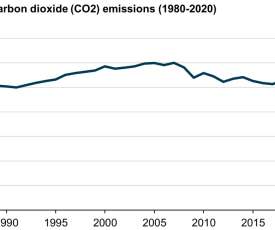EIA: energy-related CO2 emissions in US to fall 11% this year
Green Car Congress
MAY 14, 2020
The US Energy Information Administration (EIA) forecasts that US energy-related carbon dioxide (CO 2 ) emissions will decline by 11% in 2020. In EIA’s latest Short-Term Energy Outlook , US energy-related CO 2 emissions are forecast to fall more than the 5% decline in gross domestic product (GDP) in 2020. Source: U.S. Source: U.S.




























Let's personalize your content